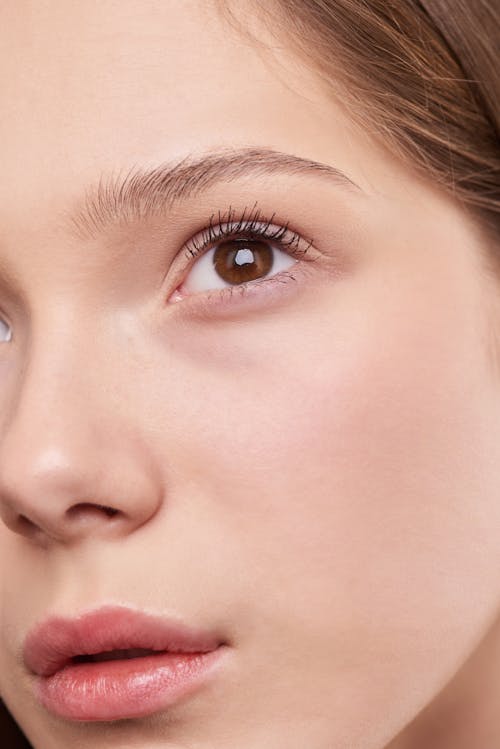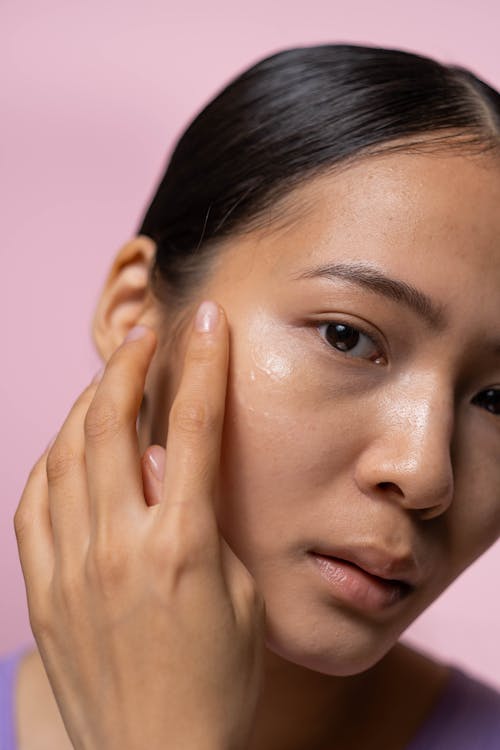Not all skin is created equal, and understanding your skin type is crucial when it comes to caring for it, therefore, a guide on how to know your skin type becomes extremely crucial.
Our skin is one of the most fascinating and complex organs of our body. It serves as a protective barrier and helps us sense the world around us. Not all skin is created equal, and understanding your skin type is crucial when it comes to caring for it.
Whether you have dry, oily, combination, or sensitive skin, identifying your skin type is the first step towards achieving a healthy and radiant complexion. In this article, we’ll explore the characteristics of each skin type and provide tips on how to determine your own, so you can start taking the best possible care of your skin.
Article Contents
What is Skin Type?

Skin type refers to the natural characteristics and behavior of your skin. There are four main skin types: dry, oily, combination, and sensitive.
Understanding your skin type is essential for choosing the right skincare products and routines that will help maintain your skin’s health and prevent issues like acne, premature aging, and dryness.
Factors that influence skin type include genetics, age, hormones, environment, and lifestyle habits. By determining your skin type, you can develop a customized skincare routine that addresses your specific needs and concerns.
Reasons You Need to Know Your Skin Type

Knowing your skin type is crucial when it comes to caring for your skin. Here are several reasons why understanding your skin type is so important:
It helps you choose the right skin care products: Using the wrong skincare products for your skin type can cause a range of problems, from dryness and irritation to breakouts and inflammation.
By knowing your skin type, you can select products that are specifically formulated to address your skin’s unique needs.
For example, if you have oily skin, you may want to look for products that contain salicylic acid or benzoyl peroxide to help control excess oil production, while those with dry skin may benefit from moisturizers containing hyaluronic acid or ceramides.
It can help prevent or minimize skin issues: Understanding your skin type can help you identify potential skin problems before they become serious. For example, if you have oily skin, you may be more prone to breakouts and acne, while those with dry skin may experience flakiness and rough patches.
By knowing your skin type, you can take preventative measures to minimize these issues, such as using oil-free products or incorporating exfoliation into your skincare routine.
It saves you time and money: Buying skincare products that aren’t suitable for your skin type can be a waste of both time and money.
By knowing your skin type, you can avoid purchasing products that won’t work for you and instead invest in those that are specifically designed for your skin’s needs.
It helps you achieve a healthy and radiant complexion: By using the right skincare products for your skin type, you can achieve a healthy and radiant complexion. This is because your skin will receive the nutrients and hydration it needs, while also being protected from environmental factors that can cause damage.
Step-by-Step Instructions to Determine Skin Types
Here are the step-by-step instructions to determine your basic skin types:
Cleanse your face

Cleanse your face. Start by washing your face with a mild cleanser to remove any makeup, dirt, or oil.
Wait for an hour

After cleansing, wait for about thirty minutes to an hour without applying any skincare products or makeup. This allows your skin to return to its natural state.
Evaluate how your skin feels

Gently touch your skin with clean fingers. How does it feel? Is it oily, dry, or a combination of both?
Skin Types
Dry skin:
If your skin feels tight, flaky, or rough, you may have dry skin. Dry skin is often caused by a lack of natural oils in the skin.
Oily skin:
If your skin feels greasy or shiny, you may have oily skin. Oily skin is often caused by an overproduction of sebum, the skin’s natural oil.
Combination skin:

If some areas of your skin feel dry while others feel oily, you may have combination skin. Combination skin can be tricky to care for because it requires different products for different areas of the face. this type of skin has minimal oil, flakiness
Normal skin:

If your skin feels balanced and not too dry or oily, you may have a normal skin type. Normal skin is relatively easy to care for and requires only basic maintenance.
Observe any other characteristics:
In addition to how your skin feels, take note of any other characteristics such as pores, sensitivity, and texture.
Pores:


Are your pores noticeable? If so, you may have oily or combination skin.
Sensitivity:
Does your skin react easily to certain products or environmental factors? If so, you may have a sensitive skin type.
Texture:

Is your skin smooth or does it have a rough or bumpy texture? This can be a sign of dry or oily skin.
Consult with a skincare professional
If you’re still unsure about your skin type or need guidance on how to care for your skin, consider consulting with a skincare professional. They can perform a more in-depth analysis of your skin and provide personalized recommendations for your skincare routine.
Key Considerations For Successfully Determining Your Skin Type
Successfully determining your skin type requires a few key considerations. Here are some of the most important factors to keep in mind:
Observe your skin without any products: To accurately determine your skin type, it’s essential to observe your skin in its natural state. This means avoiding the use of any skincare products or makeup for at least an hour before making your assessment.
Consider the entire face:

When evaluating your skin type, it’s important to consider the whole face, as different areas may have different characteristics. For example, the T-zone (forehead, nose, and chin) is often oilier than the cheeks.
Use gentle techniques: When touching your skin, use gentle techniques to avoid irritating or damaging the skin. Avoid using harsh scrubbing motions or using products that may be too abrasive.
Take note of any additional characteristics: In addition to evaluating how your skin feels, consider other characteristics such as sensitivity, texture, and pores. This can help provide a more accurate assessment of your skin type.
Seek professional guidance: If you’re still unsure about your skin type or need additional guidance on how to care for your skin, consider seeking advice from a skincare professional. They can perform a more thorough analysis of your skin and provide personalized recommendations for your skincare routine.
Taking it to the Next Level: How to Care for your skin type
The best way to care for your skin depends on your skin type. Here are some general guidelines for each skin type:
Dry skin type
- Use a gentle, hydrating cleanser to avoid stripping the skin of its natural oils.
- Moisturize regularly to help soothe dryness and prevent flakiness.
- Use products that contain hydrating ingredients such as hyaluronic acid, glycerin, and ceramides.

- Avoid using hot water when washing your face, as this can further dry out the skin.
- Use a weekly hydrating mask to provide an extra boost of moisture.
Oily skin type
- Use a gentle, oil-free cleanser to control oily skin without over-drying the skin.
- Use products that contain oil-absorbing ingredients such as salicylic acid, peroxide, and clay.
- Avoid using heavy, oily moisturizers that can clog pores.
- Use a lightweight, oil-free moisturizer to keep the skin hydrated without adding extra oil.
- Use a weekly clay mask to help absorb excess oil and impurities.
Combination skin
- Use a gentle, balanced cleanser that won’t strip the skin of its natural oil.
- Use a lightweight moisturizer on the dry areas of your face and an oil-free moisturizer on the oily areas.
- Use products that target specific concerns on the different areas of your face, such as an oil-absorbing serum on the T-zone and a hydrating serum on the cheeks.
- Use a weekly mask that is formulated to balance the skin.
Normal skin
- Use a gentle, balanced cleanser to maintain the skin’s natural pH balance.
- Use a lightweight, hydrating moisturizer to keep the skin hydrated.
- Use a sunscreen to protect the skin from sun damage.
- Use a weekly exfoliating treatment to help remove dead skin cells and keep the skin looking radiant.
How to know your skin type using tissue
Another popular method to determine your skin type is by using a tissue. Here are the steps to follow:
- Start with clean, makeup-free skin. Wash your face with a gentle cleanser and pat it dry with a clean towel.
- Wait for 1-2 hours without applying any products to your skin. This will ensure that your skin has returned to its natural state.
- Take tissue paper and gently blot your face in different areas – forehead, nose, cheeks, and chin. Press the tissue gently against your skin and hold it for a few seconds.
- Examine the tissue carefully to determine your skin type.
- If the tissue has no oil or flakes, and your skin feels tight and uncomfortable, you likely have dry skin.
- If the tissue has oil on it, especially in the oily T-zone (forehead, nose, and chin), you likely have oily skin.
- If the tissue has oil only in the T-zone but is dry elsewhere, you likely have combination skin.
- If the tissue has no oil on it, and you feel comfortable and balanced, you likely have normal skin.
It’s important to note that this method is not always 100% accurate, as other factors such as climate, hormones, and skincare routine can affect your skin type.
If you have concerns about your skin or need further guidance, consider consulting with a skincare professional.
Wrapping Up and My Experience With Knowing My Skin Type
In conclusion, understanding your skin type is the foundation of any successful skincare routine. Armed with this knowledge, you can choose products and treatments that work in harmony with your skin, rather than against it.
The process of determining your skin type can be a fun and enlightening experience, as you learn more about your skin and what it needs to look and feel its best.
You can also check out our article: 15 Glowing Skin Ideas That You’ll Be Proud Of In 2024

